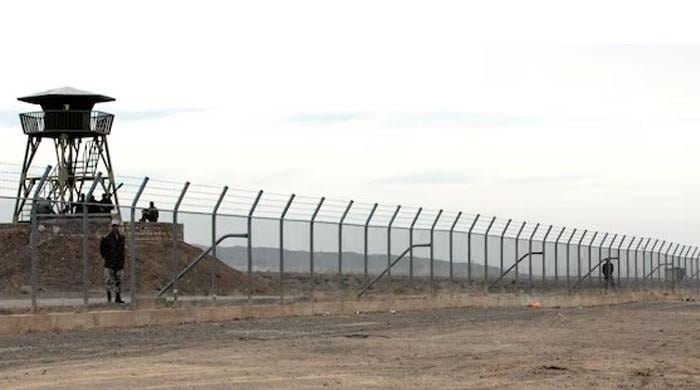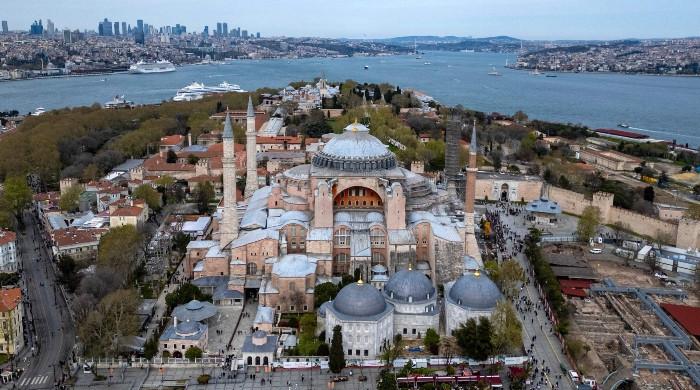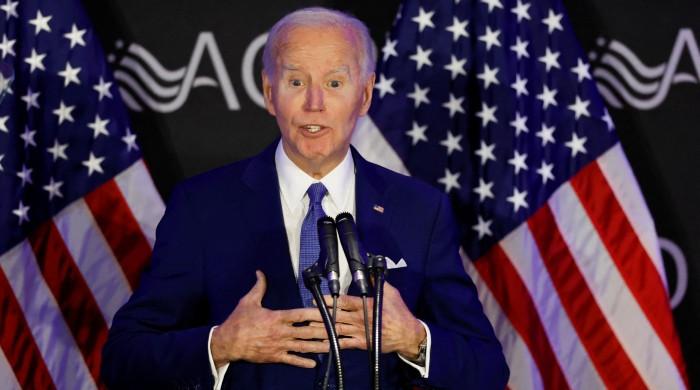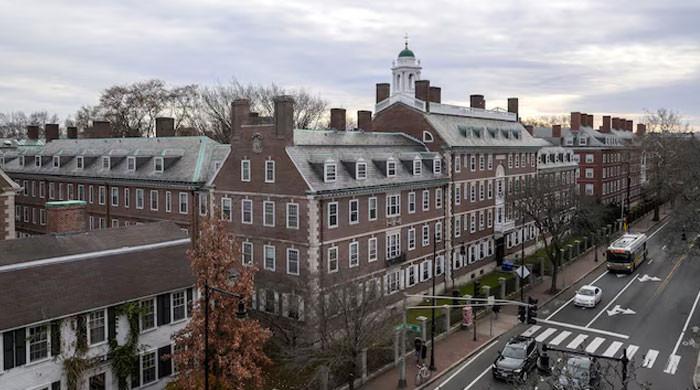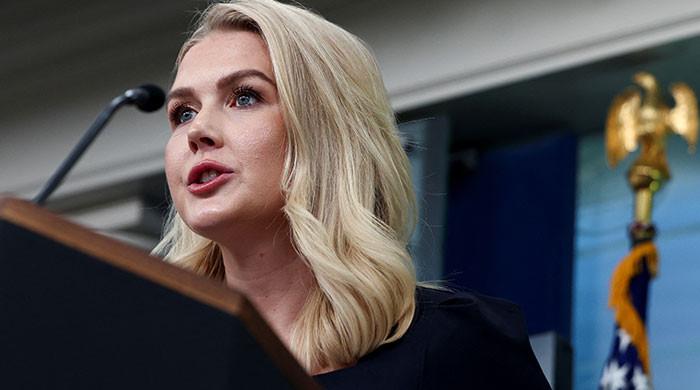Strongly urge Pakistan to work with FATF, ready to provide support: Alice Wells
US ready to provide political support, but FATF is a technical process and Pakistan has to fulfil the requirements laid out, Wells says
January 25, 2020
Ambassador Alice Wells on Friday said Washington "strongly urges" Islamabad to implement its Financial Action Task Force (FATF) action plan and stressed that the requirements spelt out in the action plan have to be fulfilled.
She made the remarks during a briefing at the US Department of State on her recent trip to Pakistan.
"[...] It’s not a political process, but we certainly support and stand ready to assist Pakistan as it implements these obligations," she said in response to a question asking if the US would respond to Foreign Minister Shah Mahmood Qureshi's request for intervention in getting Pakistan out of the grey list.
Responding to the same question, Amb Wells noted: "[...] FATF is a technical process. There has been an action plan that was presented to Pakistan. It’s a question of fulfilling the requirements that have been spelt out and that are asked of all countries in the international system."
"I welcomed efforts by Pakistan to meet its counterterrorism financing obligations under FATF [...] We strongly encourage Pakistan to work with FATF and the international community to fully satisfy its action plan commitments.
"Completion of the FATF action plan is critical to Pakistan’s economic reform efforts, including its IMF [International Monetary Fund] program, as well as for demonstrating sustained and irreversible action against all militant groups based in Pakistan without distinction," she said.
Asked if IMF funding could get affected if Pakistan did not meet FATF regulations, Ambassador Wells responded saying if Pakistan did not meet its FATF obligations or if it is blacklisted, "that would be devastating for Pakistan’s economic reform program and for its ability to attract investors."
However, she added that Washington is, "pleased to see progress by Pakistan towards fulfilling FATF obligations".
"There is a meeting underway currently in Beijing where Pakistan is presenting its actions to the task force. And so I defer to that task force to make its evaluation. But the more evidence of Pakistan’s seriousness in both documenting its economy and in shrinking the space for militants to be able to take advantage of Pakistan’s either banking system or territory, the more confidence that the international community and business community will have in working with Pakistan," she said.
'Obvious progress in relations'
While reading out a statement at the US Department of State about her recent trip to Islamabad, Ambassador Wells said, "We’ve seen obvious progress in our relations with Pakistan, from the high-level engagement such as the President’s warm and constructive meeting with Prime Minister Khan at Davos to the restoration of the International Military Education and Training programs."
'US seeking opportunities for investment in Pakistan'
Amb Wells, when asked what she had to say about Pakistan and China's negative reaction to her critical comments on CPEC, clarified that it is, "Pakistan’s sovereign right to decide what investment it seeks and on what terms."
She said that the US, as "a friend of Pakistan," wanted to 'advise' Islamabad to take on investment projects that create wealth, generate employment and are sustainable and generate the greatest economic prosperity.
She went as far as to offer that, "we have great options for the Pakistan market."
She was referencing a comment she had made shortly before, in which she revealed that American energy firms and manufacturers are interested in the Pakistani market.
"You have Exxon-Mobil, Excelerate, Cargill, Honeywell, all pursuing major new investments. You have Uber creating 80,000 jobs for Pakistani youth," she noted.
"The argument that I was making in Pakistan is that there are opportunities and should be opportunities for American investment," she said.
Afghan peace process
On the topic of Afghanistan, Amb Wells said, "We appreciate the steps Pakistan has taken to advance the Afghan peace process and Pakistan has important leverage to promote lasting security and stability in Afghanistan."
When asked what the current status of the Afghan peace deal is, Amb Wells said all she can say is that Amb Zalmay Khalilzad and his team are in Doha, "encouraging the Taliban to make a commitment to a reduction in violence that would allow Afghans to sit at a negotiation table. And so that process continues."
To a follow-up question asking if she could confirm reports of more violence in Afghanistan, she acknowledged the reports and said, "It obviously underscores why there needs to be a peace process and why the Afghan people seek peace. It also underscores the violence and the Taliban’s lack of inhibition in attacking civilians."
When reminded that US President Donald Trump had said he would not allow negotiations to proceed if the violence continued, Amb Wells said that's why a reduction in violence is being sought from the Afghan Taliban, a reduction, "that the Afghan people can see and feel and appreciate."
Bolstering economic partnership
Ambassador Wells said she had come to Islamabad tasked with understanding how to grow the Pakistan-US bilateral relation, "commensurate with the cooperation that we are achieving in promoting peace in Afghanistan and regional stability."
She said she had "extensive conversations" with government, military, civil society, and business leaders to bolster economic ties "where the US is Pakistan’s largest export market, largest trade partner, and historically one of its most significant investors."
She pointed at energy and agriculture as industries where there were possibilities of greater cooperation, and spoke about opening Pakistan's markets to American investments that can "create jobs and wealth without sacrificing standards or fueling corruption".
"We’re looking forward to welcoming 10 Pakistani buyer delegations to the US and five regional trade shows in 2020, which will build deeper relationships between US and Pakistani firms," she revealed.
"Prime Minister Khan’s economic reform efforts contributed to the World Bank identifying it as one of the top 10 reformers globally in 2019," she noted.




